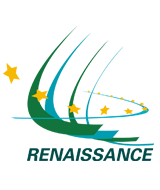
Details
Description
The RENAISSANCE project aimed to create sustainable model districts in Lyon (France) and Zaragoza (Spain). The Region of Lombardy (Italy) took part as an observer partner and carried out several research activities on technical, legal and social issues related to wood fuel supply.
Map
Project demonstration sites
RENAISSANCE Site Zaragoza
City
RENAISSANCE Site Lyon
City
Fellow cities
Lombardy
Results
RENAISSANCE demonstrated that ambitious urban regeneration programmes in two large communities of contrasting character, Grand Lyon and Zaragoza, can benefit from an integrated energy approach. The ambitious energy efficiency goals applied to the project, coupled with a high contribution of renewable energy, demonstrated that drastic reductions in conventional energy consumption (up to 70%) are achievable at reasonable costs and acceptable financial risks on energy saving investments.
RENAISSANCE included a comprehensive programme of Research and Technical Development (RTD) as well as active and widespread dissemination activities. RTD activities addressed all phases of the construction process from planning, building design, construction, building operation and maintenance to building usage.
They can be classified in five main categories:
- Innovative eco-building solutions, built on with thermal simulations;
- Renewable energy sources (mainly wood fuel and photovoltaics);
- Commercial and fiscal solutions such as ESCo;
- Socio-economic activities mainly focusing on inhabitants behavior;
- Comprehensive monitoring to assess actual energy performance of buildings and to improve knowledge regarding energy efficiency.
In addition, several activities have been carried out to encourage local and national energy policies and regulations to leap-frog in terms of energy efficiency and renewable energy targets, by exploiting the unique opportunities for innovation offered by demonstration projects of this size.
Last but not least, the project focused on strengthening the capacity of project stakeholders involved at each stage of the building process (from design to commissioning), through training and expert technical support.
In both cities, strong political commitment to sustainable development, social involvement and public-private partnerships have been the main factors of success. RENAISSANCE produced hard data and new knowledge regarding public attitudes to new energy futures, planning policy development, building design, monitoring energy systems, commercial energy services structures and local fuel supply chains.
Related topics
Building aspects
- Building Energy Services
- heating and DHW
- Installed Renewable Energy Sources
- photovoltaic
- Installed Renewable Energy Sources
- solar thermal collectors
- Technology used to supply the buildings
- boiler
Thematic Field
- New Building(s)
- Refurbished Building(s)
